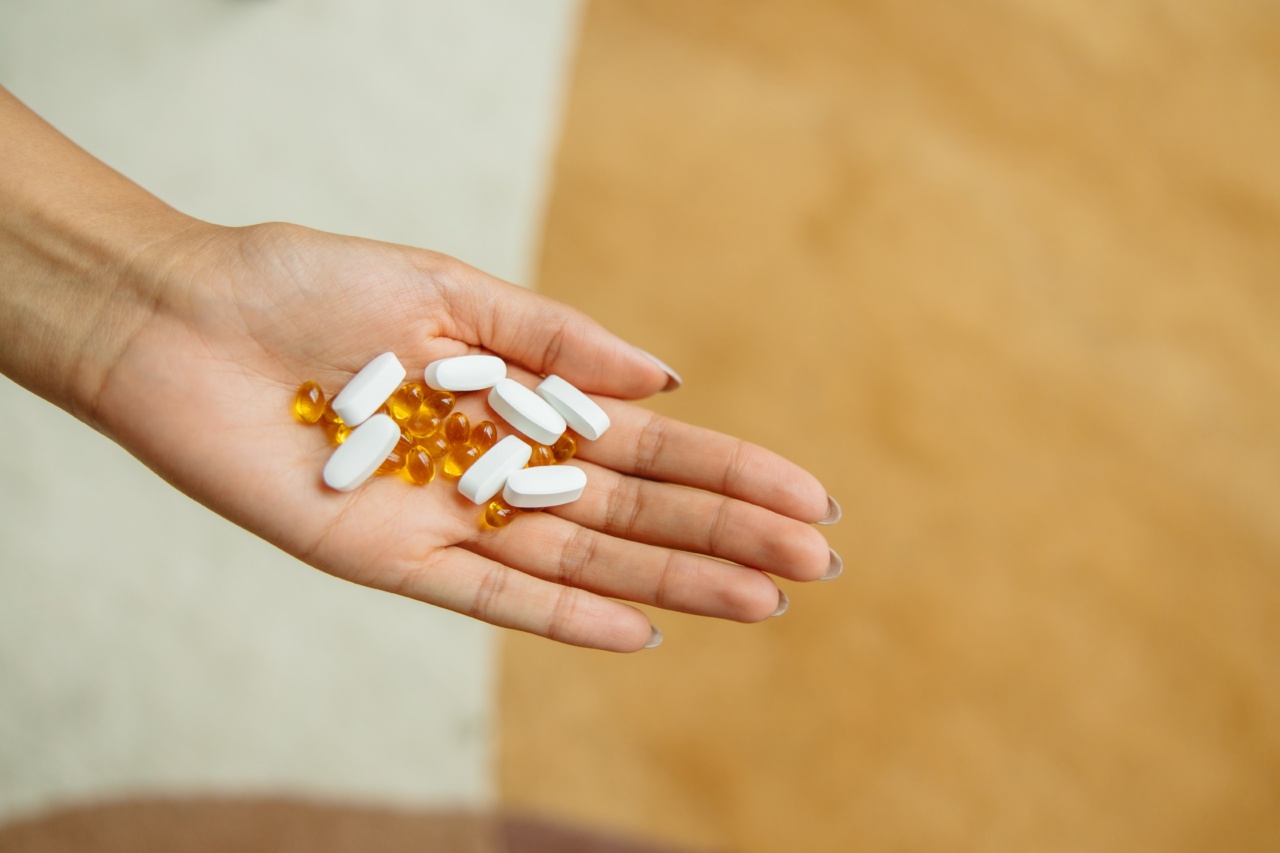Period pain, also known as dysmenorrhea, affects many women during menstruation. It can cause discomfort, pain, and disrupt daily routines.
While painkillers can help alleviate the pain, some women prefer to use natural remedies or other medications to manage menstrual pain. In this article, we’ll explore some natural remedies and medications that can help combat period pain.
Natural Remedies for Period Pain
Here are some natural remedies that some women may find helpful for period pain:.
1. Heat Therapy
Applying heat to the lower abdomen can help ease menstrual cramps. One simple way to do this is by using a hot water bottle or heating pad. Some women may also find relief from taking warm baths or showers.
2. Exercise
Exercise may seem counterintuitive when you’re in pain, but it can actually help ease menstrual cramps. Activities like walking, cycling, and yoga can help improve blood flow and reduce tension in the body, which can alleviate menstrual pain.
3. Massage
Gentle massage of the lower abdomen and back can help relieve menstrual cramps. Some women may find it helpful to incorporate essential oils, such as lavender or chamomile, into their massages.
4. Herbal teas
Herbal teas, such as ginger or chamomile tea, can help relax the body and ease menstrual cramps. Be sure to avoid teas that contain caffeine, as this can exacerbate pain and discomfort.
5. Dietary Changes
Some women may find that dietary changes help alleviate menstrual pain.
For example, reducing salt intake can help prevent bloating and fluid retention, while increasing consumption of magnesium-rich foods, such as leafy greens and nuts, can help reduce menstrual cramps.
Medications for Period Pain
While natural remedies can be helpful for managing period pain, some women may require medication to alleviate symptoms. Here are some common medications used for menstrual pain relief:.
1. Over-the-Counter Pain Relievers
Nonsteroidal anti-inflammatory drugs (NSAIDs), such as ibuprofen and naproxen, are commonly used to manage menstrual pain. These drugs help reduce inflammation and alleviate cramps and pain.
It’s important to follow the recommended dosage and not exceed the daily limit.
2. Birth Control Pills
Birth control pills work by regulating hormone levels and preventing ovulation. This can help reduce menstrual pain in some women. It’s important to discuss potential side effects and risks with a healthcare provider before starting birth control pills.
3. Hormonal IUDs
Intrauterine devices (IUDs) that release hormones, such as the Mirena or Skyla, can help reduce menstrual pain and bleeding. These devices work by thinning the lining of the uterus, which can lead to lighter and less painful periods.
4. Prescription Pain Relievers
In some cases, prescription-strength pain relievers may be necessary to manage severe menstrual pain. These drugs, such as codeine or hydrocodone, should only be taken under the guidance of a healthcare provider.
Conclusion
Period pain can be uncomfortable and disruptive, but there are natural remedies and medications available to help manage symptoms.
Women should discuss their options with a healthcare provider to determine the best course of treatment for their individual needs.































